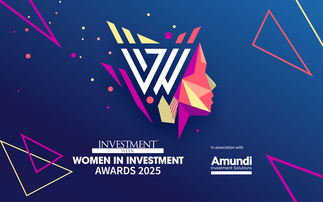
Corporate culture is one of the most important determinants of long-term business success. With this in mind, Fidelity Sustainable Global Equity Income Fund portfolio manager Aditya Shivram has been engaging with financials companies since 2020 on their approach to Diversity, Equity & Inclusion. Here, he shares some of the improvements he has seen over recent years, highlighting the crucial role that Diversity, Equity & Inclusion has on overall company performance and resilience.
The business case for DE&I is undeniable. Logically, if we want the best people to be in the most influential positions, we need to provide equal opportunities for all groups at all stages of their careers. Whilst it may be difficult to isolate its impact, multiple studies show that improved performance on factors such as employee turnover and engagement is linked to diversity, equity and inclusion over time. As investors, we believe it's important that companies have the right culture in order to adopt policies to boost diversity, equity and inclusion.
We first engaged with key financial companies in 2020 - roughly 30% of the Fidelity Sustainable Global Equity Income Fund - to find out more about their approach to gender diversity. We selected financials - a mix of banks, insurers and insurance brokers - because these industries are traditionally male-dominated, so this is where we felt the most work needs to be done. In addition, it is an industry that is human capital intensive and therefore employee management is vital to enduring success. The purpose of our engagement was to initiate ongoing dialogues about how companies are addressing the issue, facilitate a sharing of best practices, and nudge the laggards to raise standards.
Importantly, we have firm conviction that a focus on sustainability factors is highly complementary to our dividend-based approach to equity investing. The attributes of resilience and reliability that we seek in a company go hand-in-hand with a strong corporate culture that puts emphasis on factors such as DE&I.
Measuring progress
In 2022, we re-engaged with these companies to understand how far they had come on their diversity journey over the past two years. Fortunately, our low portfolio turnover approach meant that apart from one company that had been acquired, we were able to revisit the same group of companies again. As a result, we've been able to measure progress, as well as how their thinking has evolved. We looked at two main categories to gauge progress - Board representation and senior leadership representation. Both categories have shown significant improvement during this period.
Board representation
The table below shows the average percentage representation of women and minorities on the Boards of the companies we engaged with at the end of 2019 and 2021. As we can see, the increases are meaningful across both segments - six percentage points in terms of women representation and eight percentage points in terms of improvement of minorities.
Average of data in 2019 and 2021 company sustainability reports for PNC, Admiral, Progressive, Zurich, Munich Re, Marsh McLennan, US Bancorp and AJ Gallagher. Minorities on Board calculation excludes Zurich and Munich Re due to lack of data.
|
Average % |
Women on Board |
Minorities on Board |
|
2021 |
43% |
22% |
|
2019 |
37% |
14% |
Average of data in 2019 and 2021 company sustainability reports for PNC, Admiral, Progressive, Zurich, Munich Re, Marsh McLennan, US Bancorp and AJ Gallagher. Minorities on Board calculation excludes Zurich and Munich Re due to lack of data.
Senior leadership representation
The table below shows the average percentage representation of women and minorities in senior leadership at the end of 2019 and 2021. While less than the increases at the Board level, the increases are still relatively meaningful across both segments. However, it is important to note here that senior leadership has different connotations at different companies, so it is harder to standardise than Board representation. Nonetheless, the progress in two years is definitively positive.
|
Average % |
Women in Senior Management |
Minorities in Senior Management |
|
2021 |
34% |
16% |
|
2019 |
29% |
12% |
Average of data in 2019 and 2021 company sustainability reports for PNC, Admiral, Zurich, Munich Re, Marsh McLennan, US Bancorp and AJ Gallagher. Minorities in senior leadership calculation excludes Admiral, Zurich and Munich Re due to lack of data. Progressive is not included in the women in senior leadership calculation but is includes in the minorities in senior leadership calculation due to data availability.
A watershed moment
Undoubtedly, 2020 was a watershed year for many companies becoming more serious about DE&I, with the pandemic, the Black Lives Matter movement and US social unrest creating a profound impact and driving companies to start developing a strategic approach, backed by new initiatives. As we started work to re-engage with our companies in 2022, we were unsure whether the initial momentum had faded away or whether these practices had made an impact yet.
Upon reflection, companies have maintained the momentum behind their DE&I goals, and in fact, reasonable progress has been made in the journey towards greater diversity, equity and inclusion in senior management. Throughout this process, we have shared our thoughts on best practices and found companies to be receptive to ideas that have been effective in other organisations. This includes, for example, linking policies with outcomes such as employee retention and company satisfaction.
As a framework, we see a three-pronged approach to improving diversity in leadership. Firstly, to have a culture and recruitment system that is free of bias and enables gender and ethnic minorities to have equal access to opportunities. Secondly, to have a set of expectations for managers and leaders that fosters an inclusive environment with strong feedback loops to ensure this is adhered to. And finally, to have specific affinity and mentoring programs to help women and minorities develop their careers and ensure a sense of belonging.
Overall, we are pleased by the progress financial companies have made in their DE&I journey and are excited to continue to work with them. This will remain a key area of focus for us over the coming months and years as we strongly believe that strong inclusive cultures can drive the long-term competitive advantages of these businesses. Over time, we believe this should help us deliver our objective of an attractive dividend-based total return to our investors.
Aditya Shivram is the portfolio manager of the Fidelity Sustainable Global Equity Income Fund portfolio manager at Fidelity.












